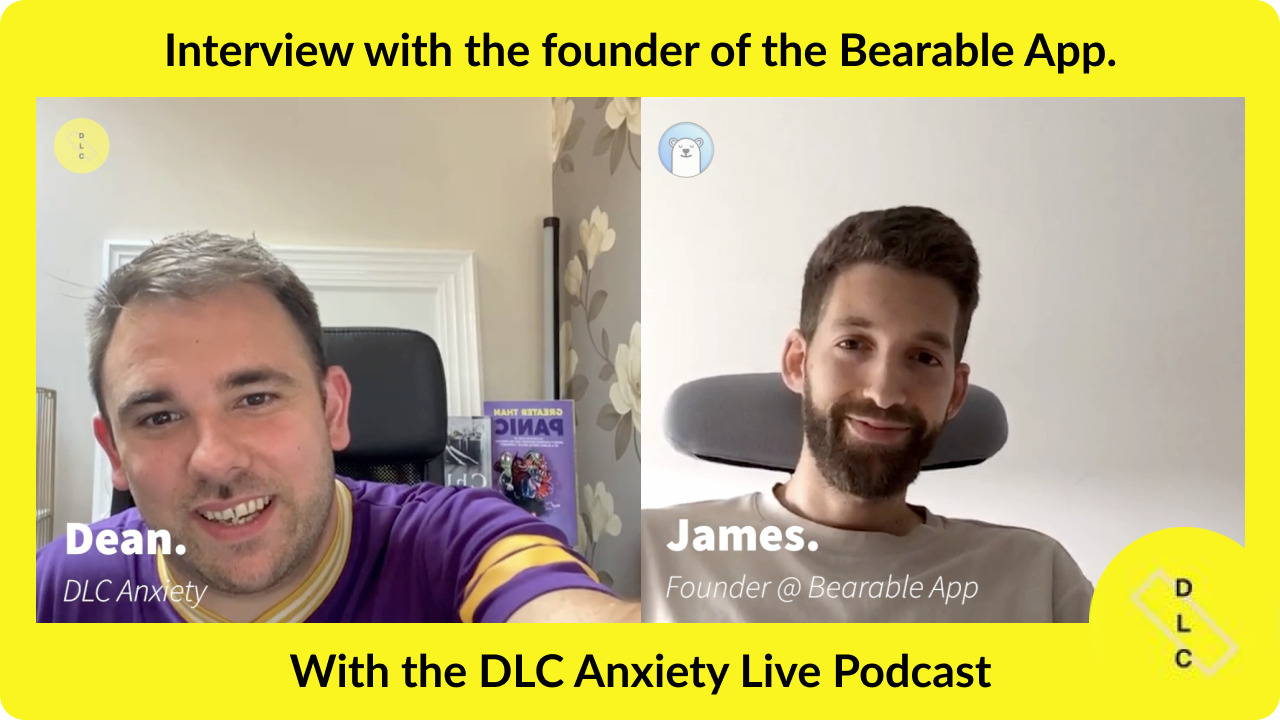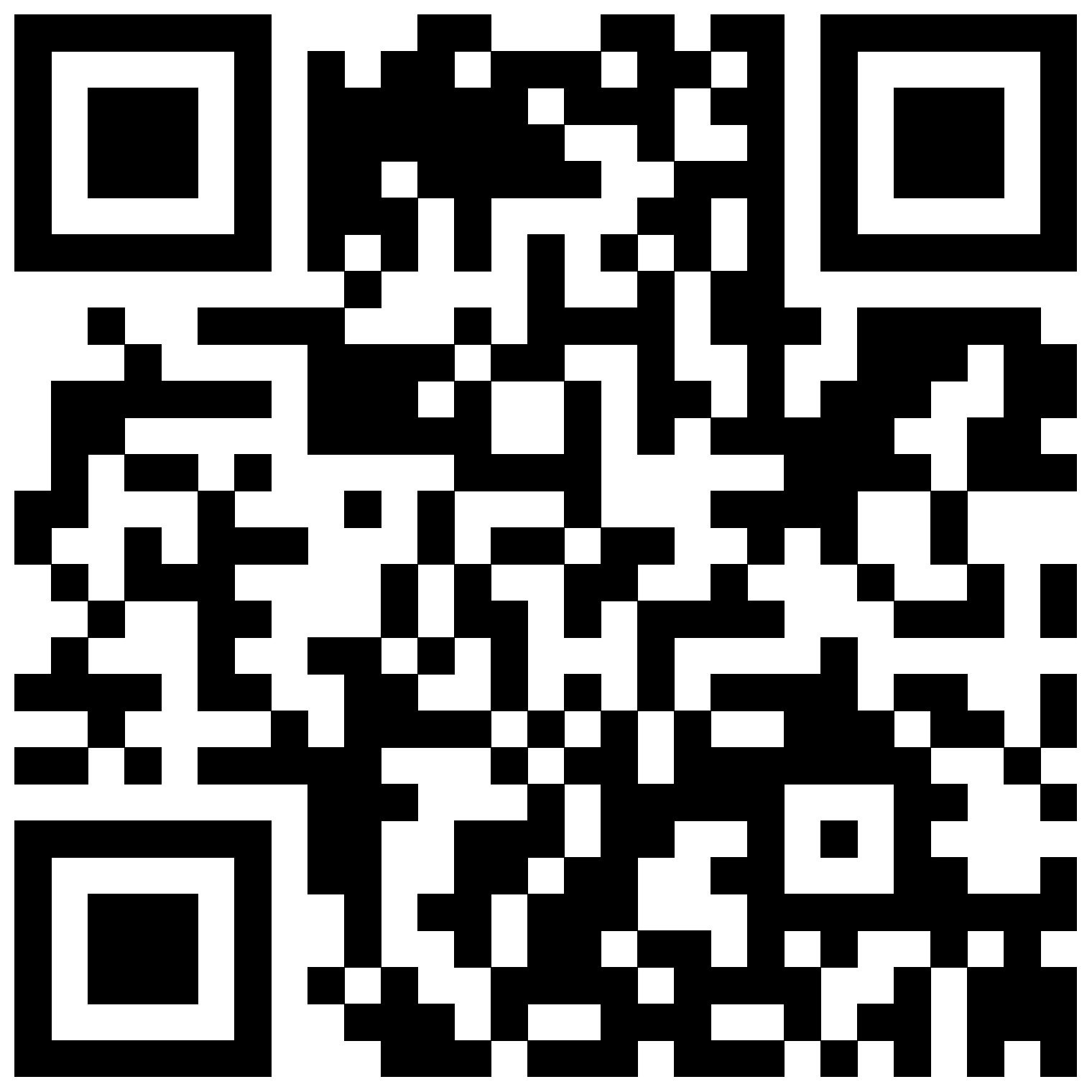Dean. Here we go. Hi. Okay there? Can you hear me fine? Yeah, I can hear you. How are you doing?
James. Yeah, I’m very well, thank you.
Dean. Thank you for Time Out to speak to the community about all the wonderful things you’re doing with your fantastic app. For everyone who doesn’t know about the app, are you able to just give a brief explanation of what it is, why you thought that there was a space for it in the mental health community and just us, maybe your personal journey with anxiety or mental health?
James. Yeah, sure. So I can start from firstly, I come from a background, completely unrelated health, and I was actually working quite a stressful job before, which led me to which I had to leave due to dealing with a lot of different unusual symptoms, which were only getting worse, and that included anxiety, which also made the physical symptoms worse. And during this time, I was often leaving, like, doctor appointments, feeling quite frustrated. I felt like I hadn’t given a full and clear picture of my health because it’s hard to remember how he was feeling last week, let alone last month.
Dean. Was that like the stress within the appointment or the anxiety whilst in the appointment?
James. Yeah, it was kind of the anxiety. I mean, it was mainly the anxiety that I wasn’t being given a diagnosis and I was dealing with a lot of different symptoms and it was quite stressful. Like I was feeling frustrated with myself that I hadn’t felt like I’d put across kind of how I was really feeling. And that led me to kind of start tracking everything on a spreadsheet, kind of my mood, my symptoms, my anxiety levels, just even like, sleep, exercise, diet, everything, supplements. And that was quite useful, feeling a bit more in control of my health and coming a bit more prepared for doctor appointments. But ultimately, spreadsheets aren’t very mobile-friendly. So I looked for another app and they tended to be quite focused on one thing or maybe at most two things. And like a mood tracker, a symptom tracker, a medication tracker, sleep. I didn’t want to have to juggle eight different apps to stay on top of my health. And it didn’t make sense to me to keep all this data separate when you could be missing out on some really interesting health patterns, especially with the connection between the mind and the body. So I posted all of my ideas for this app that I was thinking about to different subreddits, different health condition forums on Reddit and within a few months had like kind of 10,000 people subscribe to a newsletter kind of.
Dean. From Reddit alone?
James. Yes, from Reddit alone. And it was very clear quickly that people have been looking for something like this for a long time. And when we released that at the time of the pandemic, coincidentally when that started, we were really building it with the community. I was posting all my designs. I was like, how’s this looking? How’s the app? Like, sending prototypes? And really that’s continued in the last few years. We’ve really built the app alongside our community rather than kind of if we want to be very what you call like, patient-centric or user-centric, you need to be listening to what people actually want. And we have, for example, like a public roadmap when people could vote and suggest new features. And in terms of the ultimate vision of our app is we want to build like, a community of engaged patients, helping themselves almost like crowdsourcing what’s working for people with specific health issues and allowing them to share their ultimate self-care routine with others in a similar boat to them.
Dean. Like you said, a lot of people go, especially in the anxiety community, go to a doctor’s appointment, they have all these things that they want to say to the doctor and then they go in and the mind goes blank, which is an anxiety symptom. And like you say, they can leave the physicians feeling frustrated, maybe off-putting, that they put themselves through that situation and they’re embarrassed that they couldn’t actually say what they wanted to say, so it can actually stop them from going to the doctors in the future. So I really love how you’ve leaned into how that sparks the almost idea of the app, of leaning into trying to get the best information for someone who’s going through something. I know you said it’s not anxiety specific, but relating it to our community really does fit because I know so many people who go into a doctor’s office and I hear from them and they say, listen, I wanted to say all this, but I left saying nothing and I feel frustrated with myself. So just regarding that actual aspect, what part of the app helps a person regarding that? So how will the app help someone who get everything off the chest with the doctor and have an open conversation without them missing other mind going blank?
James. Yeah, I mean, we just make it very easy for you to track your health holistically so you can easily track quickly track your moods alongside. Symptoms, alongside how severe your anxiety is, and even your other factors that are really important, that can impact anxiety, like your sleep, like your diet, like your exercise levels. And you could easily write notes as well, in addition to your habits and any supplements or medication you’re taking. And it can just really quickly, you can just come prepared. You can look through your timeline and say, this is how I was feeling last week, this is what I was doing, this is how my sleep was. And it just really gives that doctor kind of therapist an overview of your health quite quickly. And it just helps kind of to spark conversation. You just come a lot more prepared. You come with data and feedback. We’ve got is that coming prepared with graphs and kind of a timeline. It makes doctors take people a bit more seriously. And on the point that you were making as well, I feel like some people and this can relate to anxiety too, I think, which comes with a lot of physical sensations too. But the people who I’ve spoken to with chronic health conditions like chronic fatigue syndrome, for example, they feel relatively what you call like gaslit by doctors, because the doctors often they will say it’s all in they’ll phrase it as if it’s, like all in their head kind of thing, right, when they’re actually dealing with a lot of real physical symptoms. And that applies to anxiety too. So being able to actually come with this hard data, these are the symptoms I was experiencing, these are houses, do they be and these are how they change even not only during the week, but over the course of the day as well. It just gets doctors to take people a lot more seriously and help get towards the diagnosis more quickly as well.
Dean. So just being proactive about your own health is really important and couldn’t agree more. And what you say, that’s really interesting, that it almost changes the doctor’s behavior because, again, like you say in the anxiety community, some people go to the doctors, they tell them how they’re feeling. They’re not having a panic attack in front of the doctor. So they may to the doctor, come across as calm. And what you say sometimes, not all the times, but people feel dismissed by doctors. So having that extra evidence to speak where they can actually look at the data is amazing. Regardless, do you monitor heart rate or is that something that you’ll do in the future just out of interest?
James. Yeah, we do monitor heart rate as well. We found it very important. It’s very important for us to keep your, what you call objective outcomes. So the passive stuff like the heart rate, the sleep steps, things like this, in addition, in the same place as the subjective stuff. So the subjective outcomes are the things people with health issues need to enter, like their mood, their symptoms, their energy levels, for example. So it’s really important for me to keep all of this data together to make it really even easier to get an overview of your health and also in the same place as your habits and your treatments to see how they’re kind of correlating with your health changes.
Dean. That’s really interesting. Let me go over to the questions from the community because I’ve got some questions. Just looking at the questions, I can see some of them are overlapping. So the first one is your app looks super fascinating. Is it a health or habit tracker? And what’s the benefit tracking these measurements? So what’s the data behind tracking all these measurements when you’re tracking them together? And just in addition to that, if someone, say, with health anxiety, are they not more prone to become obsessive with that data?
James. Yeah, maybe I can actually start with that one because that actually links to my own story because I’ve suffered, and I still do suffer with quite severe health anxiety. And you think for someone like me, it’s not a good idea to become obsessive with tracking. But actually the main way my app and just tracking in general has helped me is giving me a sense of perspective. So I would often convince myself, like a lot of people with health anxiety, that I was coming down with a range of different illnesses from Doctor Google. And I would notice down in the app every time that was happening, every time I thought I was coming down with something. And then when I looked back with all of this data, I could see the sheer amount of times I thought I was going to get sick and actually nothing happened. And that was the overwhelming majority of times, 99% of times. And having just this data, this kind of hard data, really reduced the severity of my health anxiety I experienced now and also kind of made me much less likely when I start feeling some symptoms I don’t really recognize to start spiraling into something worse like a panic attack. And also when dealing with anxiety, there used to be a worry, at least in my case, that the feeling would last forever and the kind of associated symptoms, physical symptoms, that came along with anxiety. But by entering this data into the app, I was able to see, to kind of gain perspective in seeing that my those sort of feelings of anxiety actually would often last much less kind of time than it seemed in the moment. And there were actually large parts of my days where I wasn’t feeling that anxious that would have otherwise been easy to overlook, if that makes sense.
Dean. No, that makes. Total sense. It sounds like you’re using a lot of CBT techniques within the app, which is fantastic, especially from an anxiety community like angle, because obviously we know CBT really works well for a lot of people with anxiety. So that’s where they’re able to, like you say, not only track how they’re feeling at the moment, but then track all the other data around it, see the reason that they’re acting upon, why they chose that behavior and how that behavior makes them feel and why you say they can analyze that, which is a very integral part of CBT. So I really love that you’re able to use it and look at the data and like you say, where you’ve openly said that you’re prone to health anxiety and that just shows when you use them techniques correctly, it can really help someone with anxiety and with health anxiety. So I really love that because I know a lot of people with anxiety really want to look at the data. But like you say, if it’s just for example, we have a lot of people who were fitness trackers, like Fitbit or whatever, they start to get obsessed with their heart rate because every time they’re anxious, their heart goes up, get scared of the heart rate, we’ll start to wonder, why is my heart beating so fast? And if they don’t have the psycho education behind why that happens in anxiety, they can ruminate on that specific symptom and start to worry that they have a heart condition and go down the route like you said, a doctor Google, go to the doctor us. And it can be a real tough spiral, as I’m sure you know, like having health anxiety firsthand. So I just love that how you’ve got the whole array of data and you’re able to give someone the data, but not only where they don’t get. Focus and fixated on it, where it gives them almost it gives them the data, but then it gives them a rational explanation because you go into so much detail.
James. Definitely in terms of whether we’re a health or a habit tracker. We’re both a health and habit tracker and that’s where we’re kind of quite different from kind of conventional health trackers or conventional habit trackers. And just to build on that, the benefits of tracking these things together like your health alongside your habits, is that you can get insights into the impact of the habits or behaviors or choices you’re making and even your treatments kind of on your health. So it might be that the days you track your sleep and sorry, you track caffeine or you have caffeine and you track it in the app, sorry, your sleep or your anxiety are worse, for example. And you might even kind of find a correlation between your anxiety and other physical symptoms for which you hadn’t kind of put the two together, like indigestion for example, being a classic example of anxiety symptom. And it can also serve as like a nice motivator for starting a new positive habit that you be able to see some data on how that habit is actually like how your health is trending since you actually started that new habit or treatment as well, especially if your doctor has got you started on some either side supplements or medication. You can actually track how your anxiety and the related symptoms have changed since you started that treatment and you can come a bit more prepared to the doctor appointment and say, oh, this has made this a bit better, but it’s actually made this symptom quite a lot worse. And I think that’s a really useful interaction like a conversation starter for people with their doctors in kind of helping them understand what the next route the best next route is to take.
Dean. Yes. So I’ve got two questions just on what you said there. So the first one is you said it’s not a health tracker, it’s not a habit tracker, it’s not a sleep tracker. It’s all of these it’s all these things which is fantastic. My question is, we have these standalone health trackers. We have these standalone habit trackers, sleep trackers. Are you cutting corners to curate this big one platform? Because why are they standalone? And why is nobody put them all together? Is it difficult to put them all together? These are standalone apps, aren’t they? And you’ve come and you put everything together. Well, my first thoughts are that must have been a massive task.
James. Yeah, you’re right. We found out pretty quickly why people focus on just one thing when they’re making an app. Because it’s very hard to make an app where you can keep all of that stuff, track everything in one place without it, and make it very customizable without it feeling overwhelming. So that is kind of often one of the criticisms we’ll get, is that it’s like too customizable, there’s too many things I can track. So our task has always been to kind of how do we make it as simple or as complex as the user wants it to be. But that’s a very difficult challenge when you’re trying to do everything. But I think that’s why people have just other companies have focused on one thing, is because it’s a lot easier and they can really target like a niche and really focus on that and build. But I like the challenge and I think it’s very much. Needed, even though it is difficult because you want all this data to be together, really. You don’t want to have to juggle eight different apps to stay on top.
Dean. Of what you said, where you said the last thing you want, especially with an anxious mind, is eight different apps and wondering which app you was in last and et cetera. It can get overwhelming regarding what you said. And I agree with you. For some people it may be overwhelming seeing all this data, but I don’t know if you have it as a function or if you’re looking into it as a function in the future. Is there going to be an option where someone I could create a profile and I could choose which aspects of the app that I wanted it to track?So almost like an individual tracker for myself?
James. Yeah, you can do that already. That’s the great thing about the we have a very simplified home screen which has all of the things you want to track on it and you can just easily customize that. So if you wanted to, you could just track your symptoms, like your anxiety and your sleep. And we actually encourage people who are getting overwhelmed with the app and just track a couple of things and then if that’s going fine and that’s kind of really quick and effortless for you, add another thing like add your exercise as well. Add your other habits and behaviors. Start adding your medication or supplements and really slowly build up rather than getting overwhelmed by the amount of options immediately. And yeah, we would really encourage people to just start small and then build over to time. Yeah, because as you know, with anxiety recovery, a lot of it is small steps. So I really love that you’ve got that you’ve got this simplistic home screen that gives the user the options of how slow they want to take it. Like you say, as soon as they’ve got. Whatever the tracking they can then add another layer onto it.
Dean. So I love that you’re already doing that. The next question is do you have to have a condition diagnosed to use your app?
James. No, not at all. I mean, some people have even used our app to help kind of speed up the diagnostic process as they can, as I said, come more prepared with kind of graphs and notes and just a richer data set to medical appointments. Some use our medication tracker to help adhere to help them adhere to treatments in addition to our symptom and mood tracker to then be able to show graphs of their health changes to health professionals since starting those treatments and others just use it for accountability. Like as you’re inputting both your good and your quote unquote bad habits, it might kind of can draw attention to changes you should think of making. For example, if you notice your anxiety levels are higher on days you do certain habits and low on days you do certain other habits that might make you kind of reflect and try some new habits, remove some of the things you’re doing which are causing your bad anxiety. But it’s really like it mainly should be used to kind of come more prepared to doctor appointments. Obviously, you should not be making any medical decisions based on using the app. It’s just to kind of make you more aware of your own health.
Dean. Someone’s just asked how much is it to use the app?
James. It has always very important to us to make it app as accessible as possible so all of the tracking elements are completely free and then the only thing that’s behind a payable is like the more advanced insights like the correlations for example. But you can still use graphs. For example, you can still use our timeline and look back at all your notes. We’ve made as much as we can kind of free, so it’s accessible for everyone, really. And if someone did want the full feature and they were more than happy to pay that, how much would they. Have to pay it’s currently for the year, for the advanced insights, it’s $34.99 in terms of dollars. And you often have discounts, which would make it like $18.99. So compared to other apps, it’s definitely affordable.
Dean. That’s wonderful. And my other question I just remembered was, obviously the doctors are on the other end of most of this. They’re seeing the patients who are using this information, using the app. Have you had any feedback from doctors? And if so, what was it? Yeah, I guess the problem I’m speaking on in the UK with the NHS is that doctors don’t have very long with each patient. It’s hard to really get to know a patient in I think they have on average, like ten minutes with each patient. So that remains a challenge. If someone comes, they could come prepared with huge amounts of data, like graphs and notes, but whether the doctor actually has time to look through those, especially with a public health service like the NHS, is another thing and another problem. The problem lies elsewhere to be solved. But if we can make that a bit more streamlined and actually work with the NHS and get those help people connect the apps with the integrate with their system so that the doctor can just quickly have a look over. And interesting, because we know when a patient has an appointment, the doctor is going to review it before the patient’s in. If there’s a way into the so they can just review that data, then speak about it, surely that’s a win-win.
James. Yeah, definitely. I think the quicker we can get that knowledge sharing with doctors and that kind of more holistic view of that patient, the better. Because right now it’s still a case of, like, doctors are often treating symptoms rather than root causes and kind of sticking a plaster on symptoms rather actually getting to the core of that person and how their mental and physical health is. But I think the best feedback that we’ve got is that doctors have actually been recommending the app to people and that they’ve told us, oh, my doctor or my therapist, which is more often the case. Like, my therapist said to use this so that I kind of come a bit more prepared and kind of because it’s a journaling app too, right?Like, you can track your mood, you can write notes, and it helps people make those therapy sessions especially a lot more kind of productive.
Dean. No, I really like the idea of the app, and obviously I’ve taken a look of it, and I really love the interface of the app. I love the message that you guys are doing, and I love the CBT element that you’re using. And like you say, if you’re going with all this data, then you’re actually making the life of the doctor that little bit easier as well, because they’re not just guessing off the symptoms, they’ve got some additional data there to evaluate.
James. Yeah, exactly. I mean I mean, you know, if someone might not think a doctor might not think to ask certain questions about, like, you know, how are you sleeping? That could just be, like, a key part of, like, why you’re dealing with so much anxiety. Like, what are your kind of stress? What’s happening at work? What’s happening with your home life, kind of these are all things that can impact your anxiety, in addition to, I’m sure, as you know, your diet, your exercise levels, like how sedentary you are. And I think those questions should be asked more. But if they’re not, then we want patients to just be more engaged and more actively engaged in their own health and more proactive and really just come armed with lots of data and just say, this is how every aspect of my health is right now. And the habits I’m doing, the habits I’m not doing, for example, how active I am, how my sleep is, how stressed I am at work. You can track all of these things.
Dean. If you didn’t have any work with, say, the NHS doctors, maybe there’d be an avenue for you guys integrate like a doctor system within the app so you have all the data and then refer to a doctor. Just thinking off the top of my head there, the next question is how can I be sure the information the app is providing me won’t harm my health? And what if the data is wrong? How I know it’s not producing the wrong data for me?
James. Yeah, that’s an interesting question. So I guess the first thing that’s crucial to note is that, of course, our app shouldn’t be used to make any medical decisions. Like for those who need to speak to a medical professional, the goal of Bearable is to help people to feel more in control of their health just by making health and habit tracking easy and satisfying effortless. And it can help you kind of stay accountable for your health and allow you to come, like I say, more prepared to your doctor and kind of just get more out of your therapy and doctor appointments rather than replace them, so to speak. Like, we’re simply showing the data you’ve input in forms that help you visualize patterns and changes more easily rather than giving you advice or medical information. And that’s very important to kind of say and in terms of. Correlations that we feel like those advanced insights I mentioned before you shouldn’t treat them as gospel there’s so many variables in the course of someone today that they won’t be inputting every single one of those it’s impossible for us to ever say this factor made this part of your health health worse or better. I would just see these correlations as more as prompts like helping you reflect on things that might be impacting your health for better or for worse. For example, an example of why correlation and causation shouldn’t be confused is that if you notice your mood is lower on all the days you have ice cream, it doesn’t mean that ice cream is making you sad. It could be when you’re sad you have more ice cream. So it’s important to just know that we’re showing correlations.
Dean. Yeah. It almost could be a prompt, like you say, where a doctor may not ask about sleep, but obviously they’re seeing data where a patient is having 4 hours sleep all the time and they’re coming in to the office with low mood or anxiety. Then maybe they’re going to look into that and see is there a correlation between the sleep and the anxiety? So it’s opening the discussion and why you say it’s almost like a prompt not only for the person but for the for the medical professional or therapist as well who may be looking at the data so once but at what age can I start using the app?Have you got an age limit?
James. You need to be at least 16 to use Bearable legally. But we do have some people kind of even using the app to track the health of their kids and the health of their partners or elderly parents or even pets as well. But, yeah, most of our community using the app is between 18 and 35.
Dean. Right. That’s wonderful. And so on. So can your app break my habit of hours upon hours? On Dr Google and if so, how? I imagine your personal experience, you helped answer this.
James. Yeah, exactly. Like I mentioned before, using the app kind of helped me reduce my health anxiety by allowing me to kind of look back and see just how many times I thought I was getting some illness and it turned out to be nothing.
—
To learn more about DLC Anxiety and the work they do for the Anxiety Community, you can visit their website here or follow them on Instagram here.


























